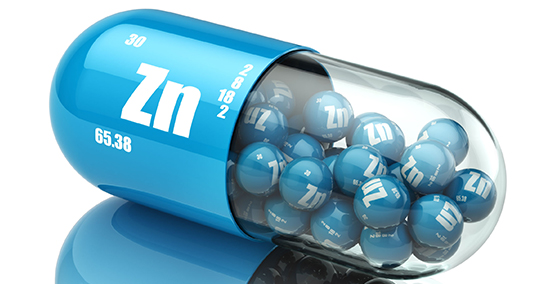
The Latest and greatest treatments for IBD: What to believe
What’s the best IBD medicine for me? Confusion on television and in your inbox....
See moresign up for our newsletter
SubscribeIf you have Crohn's disease or ulcerative colitis, preventing and treating certain nutrient deficiencies (see iron and B12) like zinc often requires more than just maintaining a balanced diet. Many factors can contribute to low zinc levels; so, it is important to figure out the cause and correct it.
Causes of Low Zinc Levels
To treat a zinc deficiency, your healthcare provider may prescribe medications like Imodium, hyoscamine or dicyclomine to control the diarrhea and prevent zinc loss. The use of acid blockers may be stopped or lessened. Zinc supplements may also be recommended to increase appetite and replace zinc lost from diarrhea or not absorbed from the diet.

Treatment of a Zinc Deficiency:
Once a zinc deficiency has been treated, there are steps that can be taken to help prevent low zinc levels in the future.
Preventing a Zinc Deficiency:
This article, as well as all others, was reviewed and edited by a member of our Medical Advisory Board.
Subscribe Be the first to know